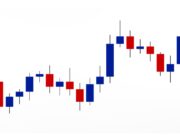Market noise is relentless. Financial headlines scream about the same handful of stocks while important opportunities—the kind that can meaningfully impact your portfolio—often fly completely under the radar.
That’s exactly why we publish this watchlist each week.
While most investors are distracted by mainstream narratives, we’re digging through earnings transcripts, analyzing technical setups, and monitoring institutional money flows to identify companies at potential inflection points. Our focus isn’t on what’s already priced in, but rather on what the market hasn’t fully appreciated yet.
Each week, we spotlight three stocks that merit your attention. We focus on opportunities where timing, valuation, and catalysts align to create potentially favorable entry points.
Our rigorous analysis goes beyond surface-level metrics to identify opportunities that most retail investors don’t have time to uncover. Each pick comes with clear reasoning, specific triggers to watch for, and a compelling risk-reward profile designed to help you make more informed investment decisions.
Here’s what caught our eye this week:
BYD Company (BYDDY)
BYD has rapidly emerged as a formidable global automotive force, demonstrating remarkable momentum as it outpaces established competitors in the critical electric vehicle transition. Trading at around $100 per share, the Chinese EV giant has not only surpassed Tesla in annual revenue ($107 billion versus $98 billion) but also delivered superior profitability, with Q1 net profit doubling year-over-year to approximately $1.3 billion while Tesla’s fell 70%. What makes BYD particularly compelling is its vertically integrated business model that began as a battery manufacturer before expanding into vehicles – giving it significant cost advantages in the most expensive EV component.
The company’s technological advancements further strengthen its competitive position, with innovations including charging systems that can deliver 250 miles of range in just five minutes (four times as powerful as Tesla’s current chargers) and advanced driver-assist systems now standard across its lineup. While BYD doesn’t currently sell vehicles in the U.S. market, its international expansion is accelerating rapidly, with management expecting to sell more than 800,000 vehicles outside China this year – double last year’s figure. This growth is supported by new manufacturing facilities in Brazil, Thailand, Hungary, and Turkey, strategically positioning the company in key markets worldwide.
BYD’s combination of technological leadership, manufacturing scale, and vertical integration creates a particularly potent competitive advantage in an industry where battery costs remain the primary obstacle to profitability. Warren Buffett recognized this potential with his early investment in the company – a testament to BYD’s durable competitive moat and long-term growth prospects. For investors seeking exposure to the global EV transition, BYD offers a compelling alternative to more widely followed Western automakers, with proven execution, expanding margins, and substantial growth runway as the company continues its international expansion strategy.
Medical Properties Trust (MPW)
Medical Properties Trust has staged an impressive 45% rally year-to-date despite broader market uncertainty, signaling a potential turnaround after a brutal three-year period that saw the healthcare REIT lose approximately 70% of its value. Trading at around $5 per share with a compelling 6% dividend yield, MPT has made significant strides in addressing the tenant concentration issues that previously forced a dividend reduction. What makes this setup particularly interesting is the combination of management’s successful execution of its recovery plan – including paying down $2.2 billion of debt since 2023 and addressing all debt maturities through 2026 – with the stock’s meaningful discount to previous trading levels.
The healthcare REIT has methodically strengthened its financial foundation by selling properties to raise capital while successfully placing new tenants in facilities previously occupied by bankrupt operators. This strategic repositioning has significantly improved tenant diversification, reducing the company’s vulnerability to individual tenant failures – a critical improvement from its previous business model. Furthermore, MPT’s focus on healthcare real estate provides a natural defensive quality, as medical facilities typically maintain stable occupancy even during challenging economic conditions.
While MPT’s recovery remains a work in progress – with rental revenues from new tenants set to gradually increase until reaching 100% of agreed terms by Q4 2026 – the most significant existential risks appear to be behind the company. For income-focused investors willing to accept some continued uncertainty in exchange for an above-average yield, MPT’s combination of sector defensive characteristics, balance sheet improvement, and tenant diversification creates an increasingly favorable risk-reward profile at current levels. This gradual recovery story may have substantial additional upside as the company continues executing its turnaround strategy.
Arista Networks (ANET)
Arista Networks has surged over 16% in the past week despite broader market volatility, demonstrating resilience that appears linked to the company’s positioning in mission-critical networking infrastructure. Trading at around $91 per share, the next-generation IT networking leader has attracted renewed analyst attention with an upgrade from sell to neutral at Rosenblatt Securities. What makes Arista particularly interesting in the current environment is its potential beneficiary status from recent tariff policies targeting Chinese competitors, which effectively improve the relative value proposition of domestic networking solutions.
The company’s strong competitive position in high-performance networking has allowed it to secure larger-than-expected contracts with hyperscaler clients – the massive cloud service providers that represent a critical customer segment for Arista’s growth. This business momentum reflects the essential nature of networking infrastructure even during potential economic slowdowns, as enterprises and hyperscalers continue prioritizing digital transformation initiatives regardless of macroeconomic conditions. With a gross margin of 64.13%, Arista maintains substantial profitability that provides flexibility to navigate changing market dynamics.
For investors seeking exposure to critical technology infrastructure, Arista represents a compelling opportunity at the intersection of artificial intelligence, cloud computing, and enterprise digital transformation. The company’s networking solutions serve as foundational infrastructure for next-generation applications, positioning it to benefit from multiple secular growth trends regardless of short-term economic fluctuations. While trading below its 52-week high of approximately $134, Arista’s recent price action suggests the market may be recognizing the company’s defensive growth characteristics amid evolving trade policies and technology investment trends.






